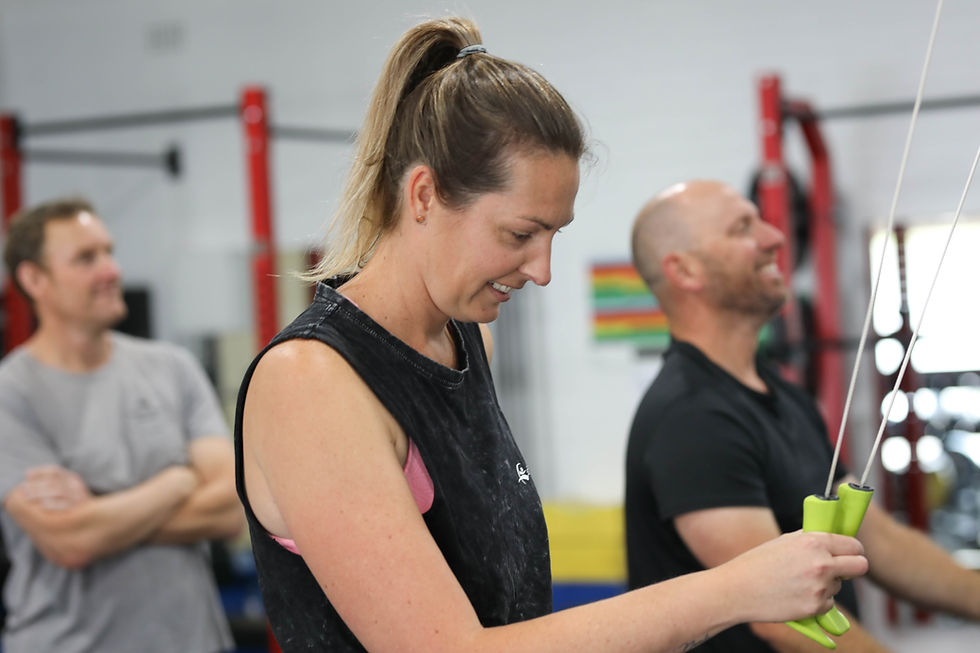Lets talk menopause
- Nadia Leslie

- Jun 12, 2025
- 2 min read
Perimenopause and Menopause
I wanted to share this info with you after attending the Healthy Aging Summit!
Stages of Menopause
Phases of menopause begin with perimenopause—when hormones fluctuate and menstrual cycles change. Menopause is marked by no periods for 12 consecutive months. Common symptoms include hot flashes, night sweats, sleep disturbances, mood swings, brain fog, joint pain, and muscle aches.
Stay Active to Maintain Muscle
Girls you hear me say this all the time but im not just blowing hot air (pun intended) Physical activity is crucial to build and preserve muscle. Loss of muscle during perimenopause and menopause is common but not inevitable. Strength training is especially important to maintain functional strength and metabolism.
This stage also increases risk of musculoskeletal syndrome—linked to inactivity, joint pain, loss of muscle mass, and osteoporosis.
Misdiagnoses and Tissue Issues
Hormonal changes during menopause often lead to misdiagnosed issues like tendinitis and arthritis. Doctors may mistake hormone-related tissue degeneration for autoimmune diseases or chronic conditions. If you suffer from anything to do with the word (itis) this could be because of the changes in your hormones. This also means that these tissue issues take longer to heal. But you shouldn’t give up. Working around and with them is your best option.
Managing stress in menopause is not a luxury ….IT MUST BE DONE!
Stress impacts cortisol levels, which in turn affects sleep, weight, mood, and overall well-being. Managing stress through regular exercise, breathing techniques, and self-care is essential during menopause.
Our next breathwork shop is this Friday the 13th of June at 630pm.
Things you may feel but no one wants to talk about!
· Lack of sex drive
· Difficulty focusing
· Forgetfulness
· Losing track of words mid-sentence
· Feeling overwhelmed or mentally foggy
Many women worry they are getting dementia when in fact its just hormonal changes.
· Low tolerance for BS – this is due estrogen and progesterone drops
· Increase in anxiety
· Aching joints and muscles for no apparent reason (and can be misdiagnosed as arthritis)
All of the above may not be something you can change but you can manage the intensity of symptoms by staying active, reducing stress and eating well.
Girls, you are not weird, there is nothing wrong with you, this is all part of this stage in life.
Other Key Tips
- Prioritize protein, calcium, magnesium, and vitamin D- Sleep 7–9 hours per night- Track symptoms to better understand patterns- Consider hormone therapy if suitable- Build a support team including health professionals like your team at PFF, a good physio and a women’s health doctor.
P.S YOU ARE NOT BROKEN……..YOU ARE TRANSFORMING INTO A BUTTERFLY…..XXXX
Nadia Leslie
xxx








Comments